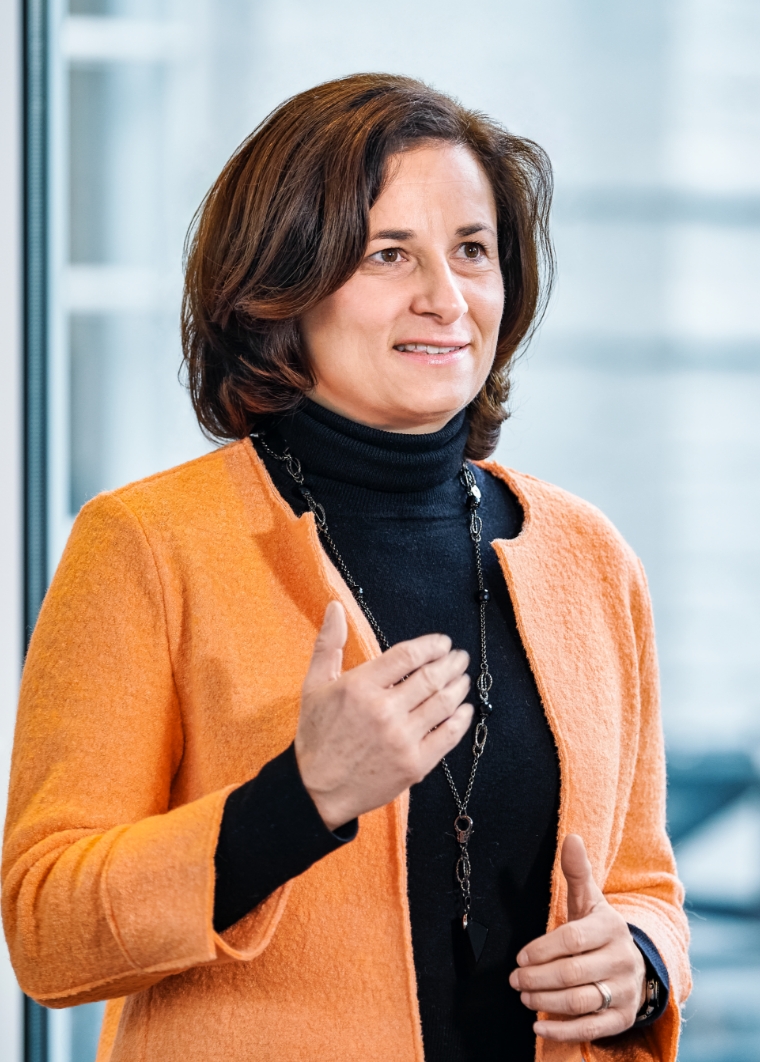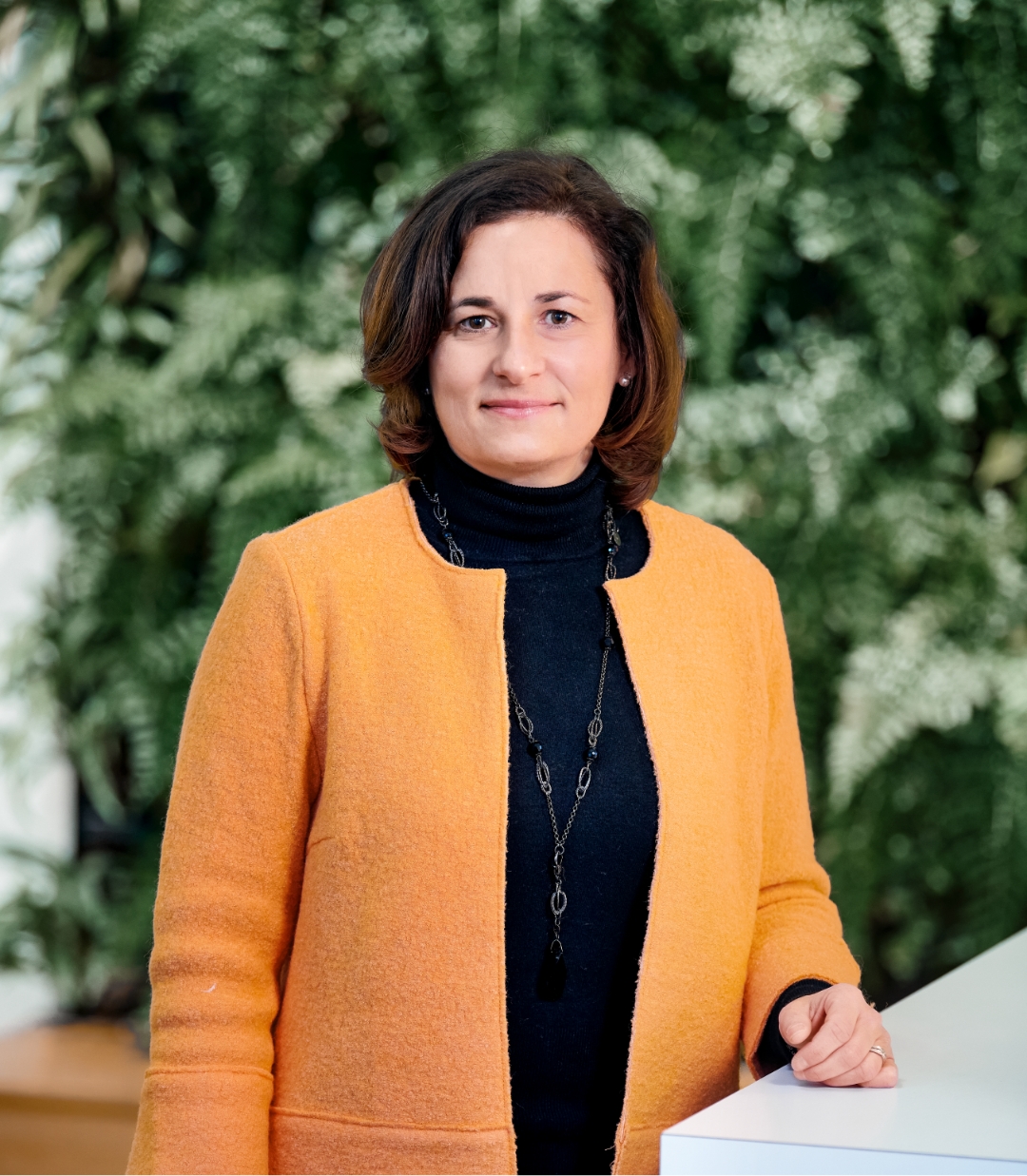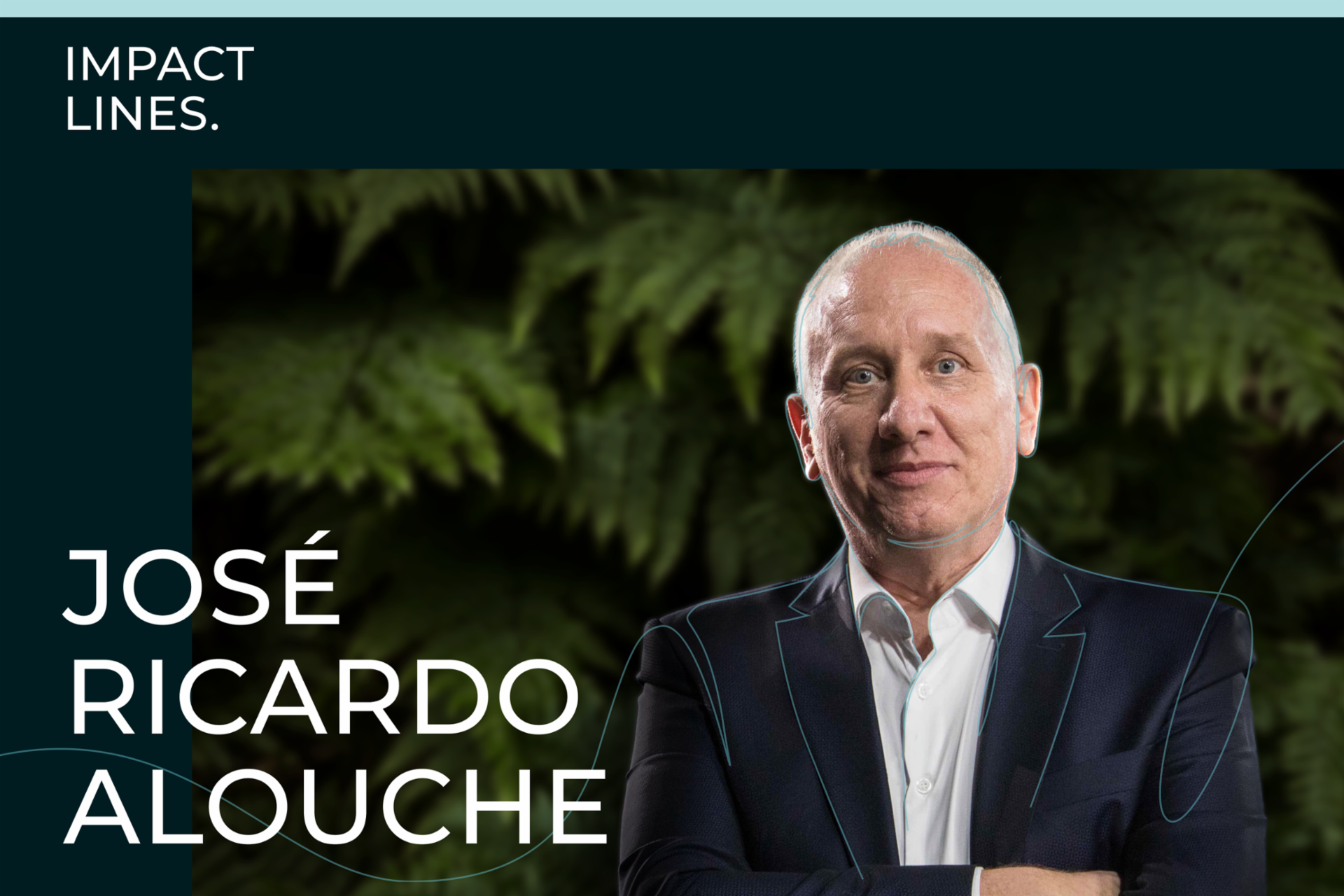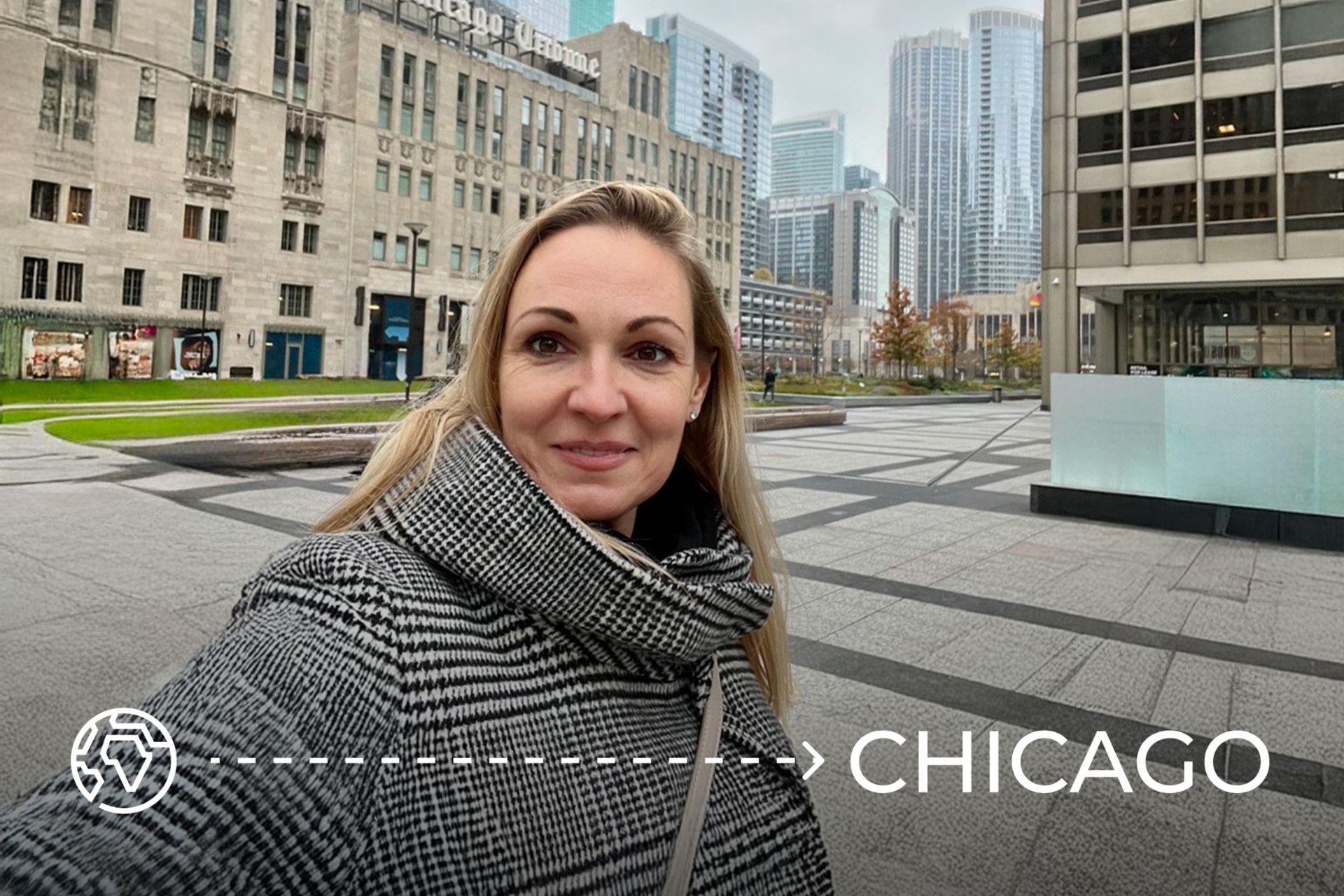The brands within the TRATON GROUP have already undertaken many initiatives to become more sustainable. As Head of Sustainability, Helga Würtele is also helping to drive the issue forward at holding company level. Working from Södertälje, the Munich native coordinates an exchange of knowledge and thus inspires new strategic approaches and creative ideas.
Ms. Würtele, how important is sustainability to you personally?
Does that apply in a similar way to companies? How would you describe the TRATON GROUP’s overarching strategy in terms of sustainability?
“We also want to assume responsibility for people themselves — that is, for our employees, customers, suppliers, partners, society as a whole.”Helga Würtele
Why do you want to found the Company’s business activities on sustainability?
Is that why the Group has joined the UN Global Compact for sustainable and responsible corporate governance?


The photographs of Helga Würtele were taken at Scania’s visitor center in Södertälje, Sweden. There, visitors can find out about the changes taking place in the transportation industry.
“Both our customers and the capital markets now look very closely at the conditions under which a product was manufactured.”Helga Würtele
What is the relationship between the individual brands and the TRATON GROUP as a whole?
How do the customers of the TRATON GROUP benefit from this?
12,000companies from 160 countries are part of the network of the UN Global Compact, an initiative that the TRATON GROUP has now also joined.
Which key issues have you identified for the Group so far that transcend the individual brands?
What are the advantages for the individual brands of working together across the Group to achieve greater sustainability?

Helga Würtele
Head of Sustainability TRATON GROUP
Helga Würtele joined the TRATON GROUP — then still known as Volkswagen Truck & Bus — in 2015 and has focused on the area of
sustainability since May 2021.
The business economist worked for MAN SE from 2008, where she held positions in Investor Relations, Controlling, and Corporate Finance. Prior to that, she spent ten years working for various banks in the areas of equity and debt capital markets.
On January 1, 2023, Helga Würtele returned to Munich and in her new position as Senior Manager ESG reports directly to Annette Danielski, Member of the Executive Board of TRATON SE, responsible for Finance and Business Development.




.jpg/jcr:content/Teaser-Grafik-Tiva-Sharifi-3840x2560-V1-(1).jpg
)
.jpg/jcr:content/Teaser-Grafik-Mansoureh-3840x2560-V1-(1).jpg
)
